Getting a pet is a big decision, and when that pet is big enough to stretch all the way across your couch, it becomes an even bigger decision… literally. When it comes time to adopt a dog, many people dream of getting one that's large enough to look intimidating to potential intruders while still fulfilling the role of an oversize teddy bear. Many big dogs fill both roles perfectly, but unfortunately, many also end up in shelters because their owners weren't prepared for all the unique challenges that come with them.
Rottweilers, mastiffs, deerhounds, and these other shockingly large dog breeds are great to have around as long as you put in the time and effort to help them live up to their potential as canine companions. Many large dogs don't realize just how big they are until after a few years, at which point they become more mature and aware of their size. The adjustment period that comes beforehand is crucial in making sure your dog is the best pet possible for both your home and the people in it. No dog is perfect, but if you do things right with your colossal canine, they're likely to turn out just as sweet and easy to have around as this big dog who's super-gentle with his frisky Chihuahua sibling!
If you're thinking about welcoming a big dog into your life, make sure you're aware of what you're signing up for before you make any important decisions. Keep in mind that all dogs are different, so you may not see some situations with your dog that others have. However, the following are some of the most common issues that owners of big-dog breeds can experience. If you feel like you can handle them, then it might just be time to make your family a little (or rather, a lot) bigger!
Make sure you SHARE this info on big dogs with all the canine enthusiasts in your life!
1. They eat a LOT.
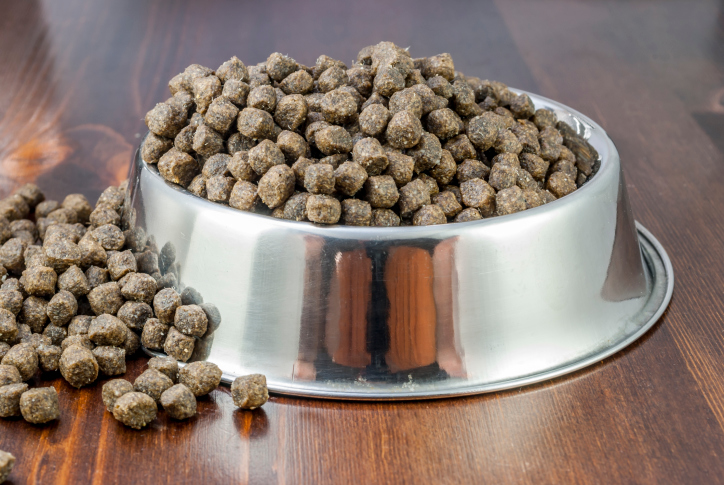
It seems like a no-brainer, but many people underestimate just how much a big dog can put down. A full-grown Bernese mountain dog, for example, can require between three and six cups of food every day. Even those massive bags of food you can't lift on your own won't last very long with a lot of large dog breeds, so make sure you have the funds to feed them before taking one home.
2. They aren't allowed in many places.
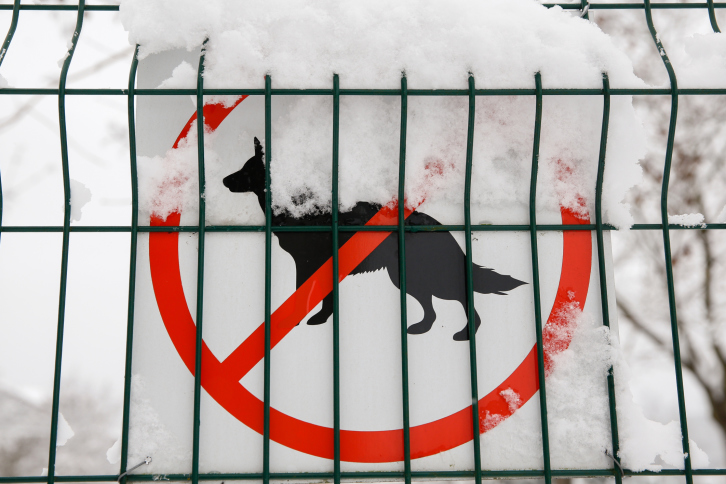
Many apartments will allow small dogs, but large dogs are another story. If you're planning on switching apartments or even considering renting a house, you need to make sure you double- and triple-check to make sure that large dogs are allowed before you sign anything. Many landlords also require a heftier deposit for larger pets, so make sure you have some extra cash before committing.
3. They MUST be well-trained.
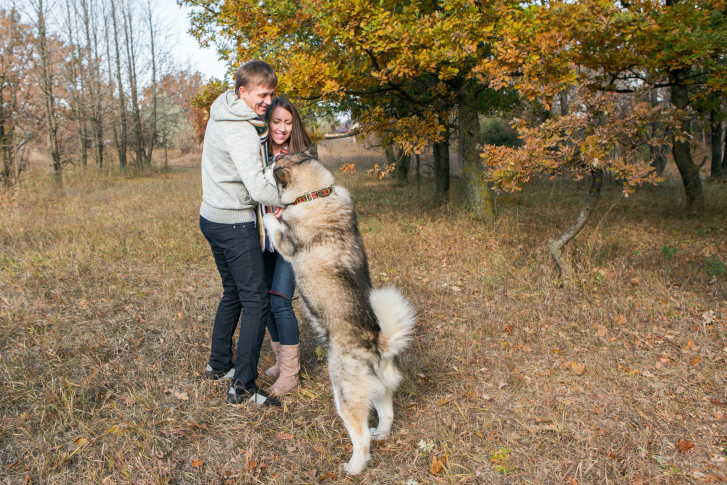
Really, you should train your dog no matter what size it is, but you can get away with an untrained little dog much easier than a big dog. A large dog will knock someone over if they jump on them, and they can drag you along or even hurt you if they pull on the leash. Make sure you have the time to teach your big dog how to behave properly. If not, you could end up with a lawsuit on your hands.
4. They have size-specific health problems.
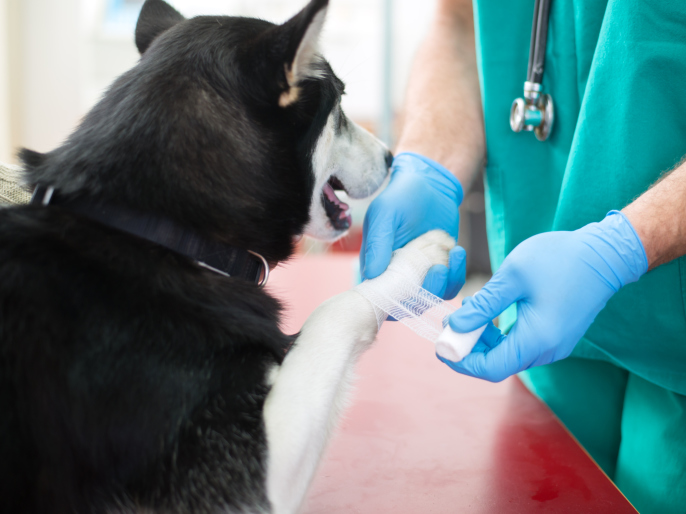
Just about every dog is at risk of developing medical conditions caused by genetics, but if you have a big dog, you need to specifically be on the lookout for joint problems. All that weight stresses out your pet's knees and hips, which may lead to them possibly requiring surgery even before they get too old. Keep their joints healthy with a glucosamine supplement, or consult with your veterinarian to help your dog's limbs stay healthy as long as possible.
5. They don't live as long as small dogs.
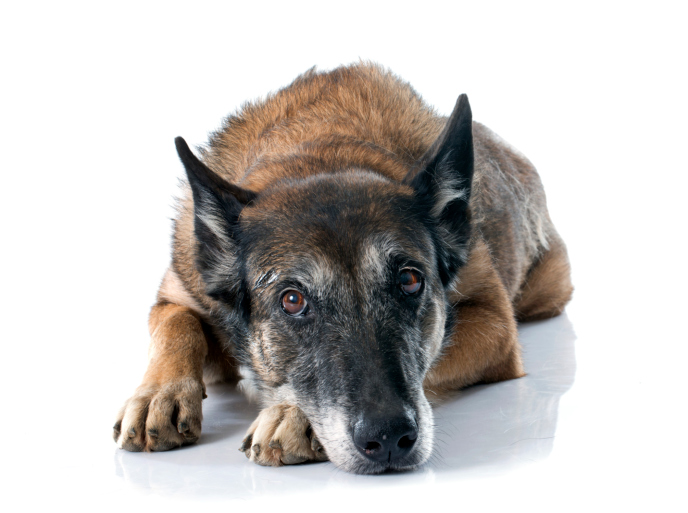
Smaller breeds can live well into their teens, but such a long lifespan is very uncommon for big dogs. Bigger dogs seem to age at an accelerated pace, which leads to dogs such as German shepherds and rottweilers living to around 10 years old, while "giant" breeds such as Great Danes and Saint Bernards often have even shorter lifespans (between five and eight years). Again, there are always exceptions to the rule, but if you want to have a dog for as long as possible, make sure you think long and hard about really being prepared to say goodbye to your companion in less than a decade.
6. They take up a lot of space.
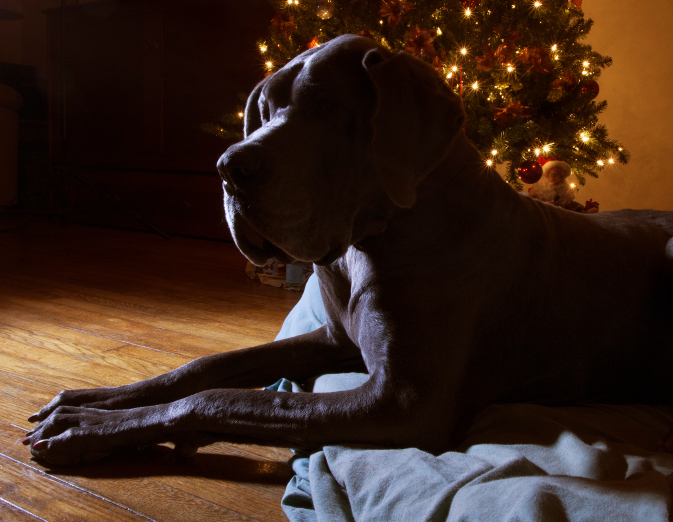
Again, this one seems like common sense, but you'd be surprised at how many people bring big dogs into tiny houses and are surprised when the dog takes up the entire floor. Although many large-breed dogs prefer the couch to running around like maniacs outside, they still require enough space to be comfortable and stretch their legs.
7. Other people might be scared of them.
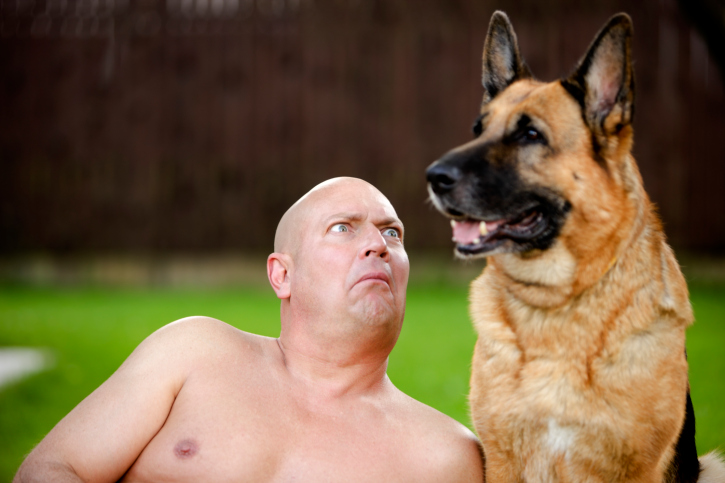
Tiny dogs might be more yippy and spunky, but most people you meet won't be too intimidated by them. Bigger dogs, on the other hand, are much more likely to make people nervous. If you have certain friends or family members who like to visit you on a regular basis, it's a good idea to talk with them before getting a big dog to make sure they'll still be comfortable coming to visit you. Be prepared to hold off on letting them meet your new dog until he or she is properly trained, and make sure that both dog and human are in a comfortable, quiet place when they finally do meet. And most importantly, be prepared for your loved one to say that they never want to come in contact with your dog.
8. They're much less portable.
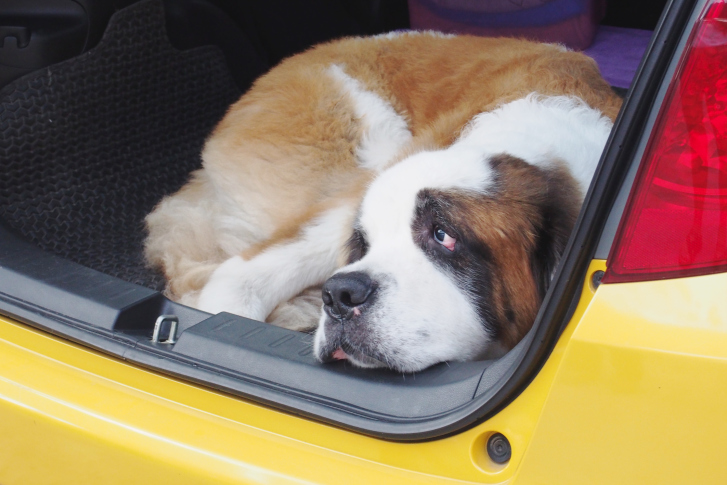
If an aggressive dog looks like it wants to eat your small-breed dog, you can pick up your pup to keep them safe. The same usually isn't possible for a big dog. Larger dogs will require more planning when it comes to car rides (especially if you have kids in the backseat), and many stores that permit small dogs to enter won't give the same welcome to, say, an English mastiff. If you're used to taking your small dog everywhere you go, be prepared to change your routine once you have a big dog.
9. Just about everything is more expensive for them.
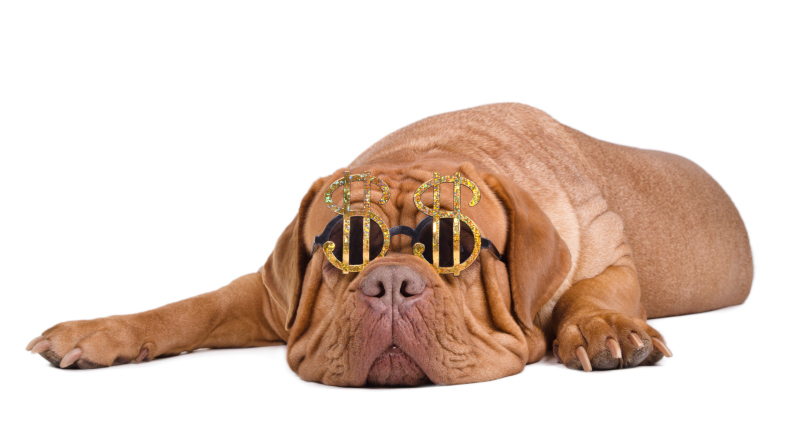
Collars, toys, and trips to the groomer will all cost you more if you have a big dog. It makes sense; more material means more cash. But still, you're going to have to budget in a bit more money if you want to lead the big-dog lifestyle. The added costs shouldn't be enough to break the bank, but they do add up over time, and it's better to be prepared than caught off guard.
10. They're (usually) gentle giants.
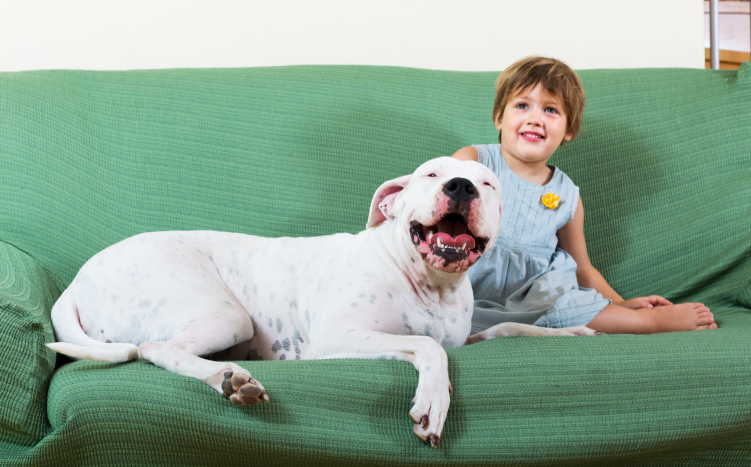
Every dog is different, so of course I'd believe you if you told me that you'd met a really nasty Great Pyrenees. However, a dog that is both huge and mean is pretty rare. Larger dogs tend to feel less threatened by their surroundings, so in their eyes, they have a lot less to bite or growl at than a smaller dog who can easily be stomped on. As a result, many (but again, not all) big dogs are extremely docile and great with kids.
11. However, they can cause a lot of accidental damage.
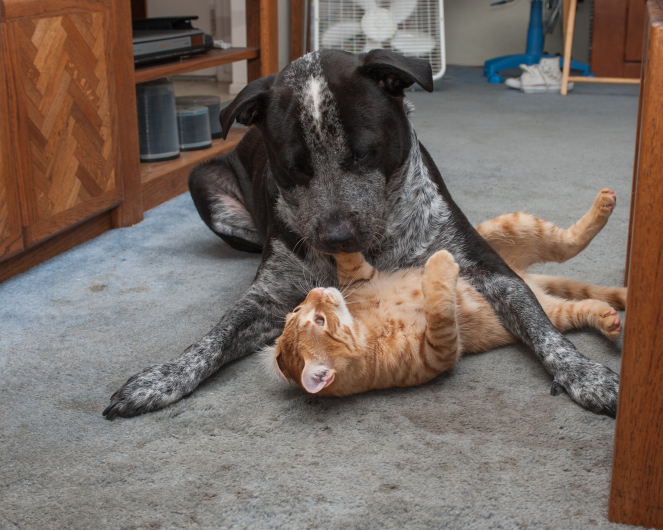
With big dogs often come big tails, so make sure any fragile or valuable objects are out of wagging range before bringing a big dog into the house. While many large-breed dogs are also very patient and gentle with children, that doesn't mean they won't accidentally knock your small kid over when they're trying to play. Even though there's probably not any malicious intent behind much of the problems big dogs cause, it's still a good idea to take some extra precautions before deciding to get one.
12. They can reach tables and countertops much easier.
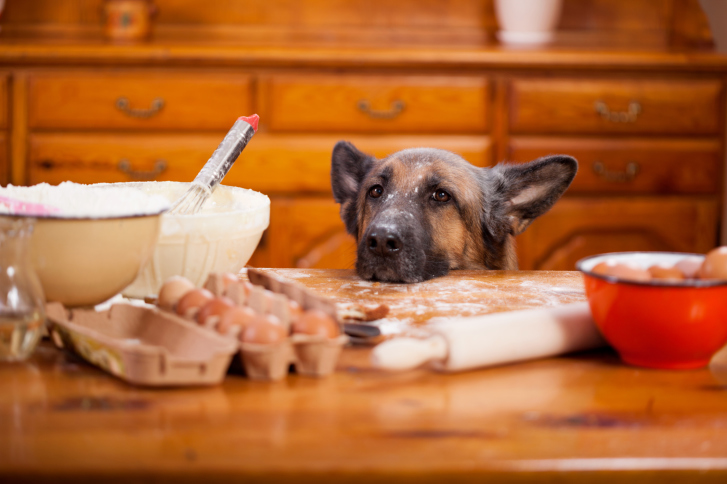
Even if you think that plate of cookies is out of your dog's reach, it probably isn't. Dogs can double in height when they stand on their hind legs, which means that your Great Dane that is three feet at the shoulder can end up being way taller than you when she decides that your beef stew just smells too good to resist. Training your dog can help them stay away from anything you leave within their reach, but just to be on the safe side, keep toxic substances and human foods in enclosed spaces or pushed away from the edges of tables and counters.
13. They make more of a mess.
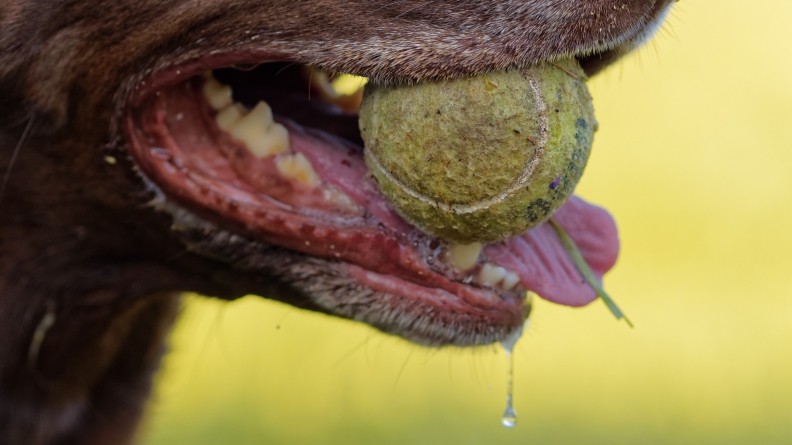
More dog means more slobber, more hair, and more poop to clean up. Even if your pup is pretty tidy, you should expect to do more sweeping and mopping than you would with one of their smaller counterparts. If your main priority is a constantly spotless house, be prepared to be busting out the cleaning products every day with a big dog in the house.
14. They're louder.
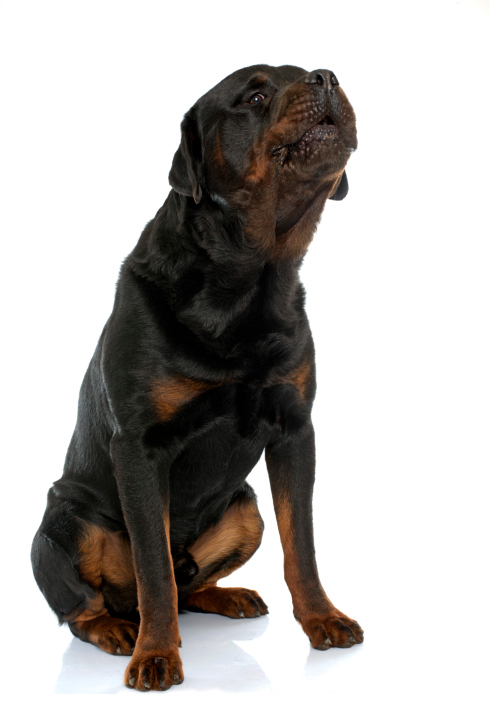
Between all the things their tail can (and will) knock over, their clompy footsteps, and the other canine noises that get magnified when they're performed by a larger dog, you might find that sleeping is a bit more difficult with your big best friend around. Not all big dogs bark as much as little dogs do, but when they do decide to talk, you can expect a deeper noise that seems to rattle your insides. Keep this in mind if your walls are thin or if you have neighbors who aren't crazy about dogs in the first place.
15. A bite from them can cause serious damage.
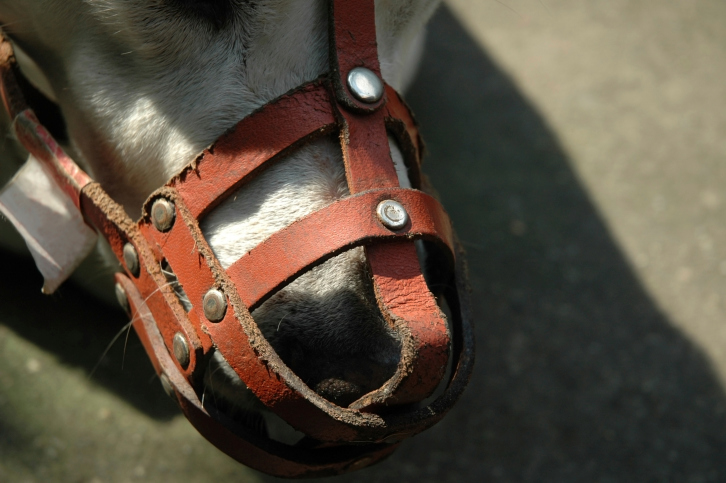
This is a big reason why proper training and a good environment are so important for these large dogs, but sometimes, even the best dogs meet someone they just aren't crazy about and can lash out unpredictably. If you have any suspicion that your dog could become aggressive around someone, your first priority needs to be to separate them from whatever they feel threatened by. A bite from a little dog can hurt and even draw blood, but a bite from a big dog could mean a trip to the emergency room and reconstructive surgery for the victim and possibly euthanasia for the dog.
16. The benefits outweigh all the costs.
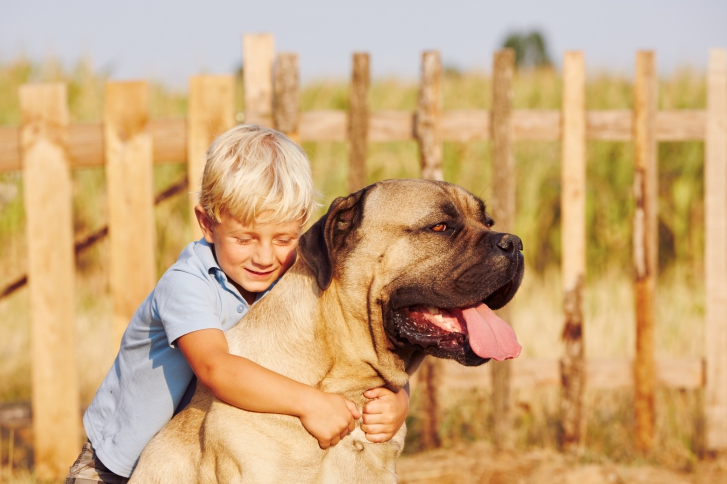
Despite the fact that they can require more work and money than smaller pooches, big dogs are an absolute joy to have around. They make fantastic companions, great cuddle buddies, and unforgettable family members. Anyone who has a larger breed will be the first to tell you that while they may be a bit of a challenge at times, plus-size pups enhance your life far more than they inconvenience it. If you're willing to put forth the effort, you might just find that welcoming a large dog into your home is the best decision you've ever made.
Make sure you SHARE these big dog tips with all your friends!




